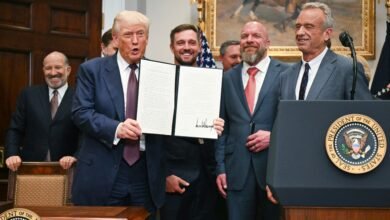President’s Day: A Time to Honor Past Leaders and Inspire Future Ones

Presidents’ Day is observed on the third Monday of February. It is a federal holiday that was marked to honor George Washington’s birthday. Established in 1885, the holiday was observed in recognition of Washington, the first president of the United States and a foundational figure in American history. Over time, the holiday evolved to recognize not only Washington but also Abraham Lincoln, whose birthday falls on February 12, and eventually, all U.S. presidents, past and present.
The transformation of the holiday began with the Uniform Monday Holiday Act of 1971, which aimed to create more three-day weekends for American workers. As a result, Washington’s Birthday was moved from its fixed date of February 22 to the third Monday of February. While the US government still officially recognizes it as Washington’s Birthday, many states, businesses, and citizens now refer to it as Presidents’ Day, a day to honor the contributions of all U.S. presidents.
Washington’s Birthday: The Original Holiday
The tradition of celebrating Washington’s birthday began in 1800, a year after his passing. Due to Washington’s immense influence in shaping the United States, his birthday became a significant day of remembrance. By the late 19th century, Senator Stephen Wallace Dorsey of Arkansas proposed making it a federal holiday, and in 1879, President Rutherford B. Hayes signed it into law. Initially, the holiday was only observed in Washington, D.C., but in 1885, it was expanded nationwide.
Washington’s Birthday was the first national holiday to honor an individual American, followed much later by Martin Luther King Jr. Day in 1983. Celebrations traditionally included public ceremonies, speeches, and reflections on Washington’s legacy.
The Shift to Presidents’ Day
In the 1960s, Congress introduced the Uniform Monday Holiday Act, championed by Senator Robert McClory of Illinois, to provide workers with more consistent three-day weekends. This law moved several holidays, including Memorial Day, Veterans Day, and Columbus Day, to designated Mondays.
The act also included a proposal to combine Washington’s Birthday with Lincoln’s Birthday (February 12), which had been recognized as a state holiday in places like Illinois. Some lawmakers suggested renaming it Presidents’ Day, but opposition from representatives of Washington’s home state, Virginia, prevented the change from becoming official at the federal level.
Despite this, the holiday became popularly known as Presidents’ Day, largely due to advertisers and retailers who saw an opportunity to market holiday sales. By the 1980s, the new name was widely used, and by the early 2000s, many states had formally adopted it.
Who Does Presidents’ Day Honor?
While Washington and Lincoln remain the most recognized figures, Presidents’ Day has come to symbolize a broader recognition of all U.S. presidents. Some historians and lawmakers argue that the shift to honoring all presidents regardless of their impact diminishes the legacies of Washington and Lincoln. In the early 2000s, efforts were made to restore separate holidays for Washington and Lincoln, but these proposals failed.
A Day of Reflection and Celebration
Presidents’ Day serves as a reminder of leadership, national unity, and the challenges faced by past presidents. Whether viewed as a day for shopping deals or as a tribute to America’s leaders, Presidents’ Day remains an important part of the country’s history and culture.
Key Lessons Our Precious Children Learn from Presidents’ Day
- Leadership and Responsibility: Children learn to imbibe strong moral character just like these presidents being celebrated.
- History and Democracy: Children get to learn about historical events and elections that ushered these presidents into office.
- Perseverance and Hard Work: They learn the various challenges during each president’s tenure and how they resolved them.
- Patriotism and National Pride: At a young age, children learn to be patriotic citizens.
- Good Citizenship: They learn that honesty and fairness are great values to imbibe.
How Parents Can Make the Holiday Impactful and Enjoyable for Children
- Parents should join their children to either read a book or watch documentaries about famous presidents.
- They can take their children to historical sites or museums.
- They can discuss with their children the qualities of a great leader.
- They can ask their children to tell them what they would do if they were president for a day.
Conclusion
President’s Day is used to reflect on the legacy of the U.S. presidents and honor their contributions to the nation-building. Beyond a day of historical remembrance, it helps Americans ponder on the values of democracy, leadership, and service that have shaped the country.
Image Source: http://www.bing.com





